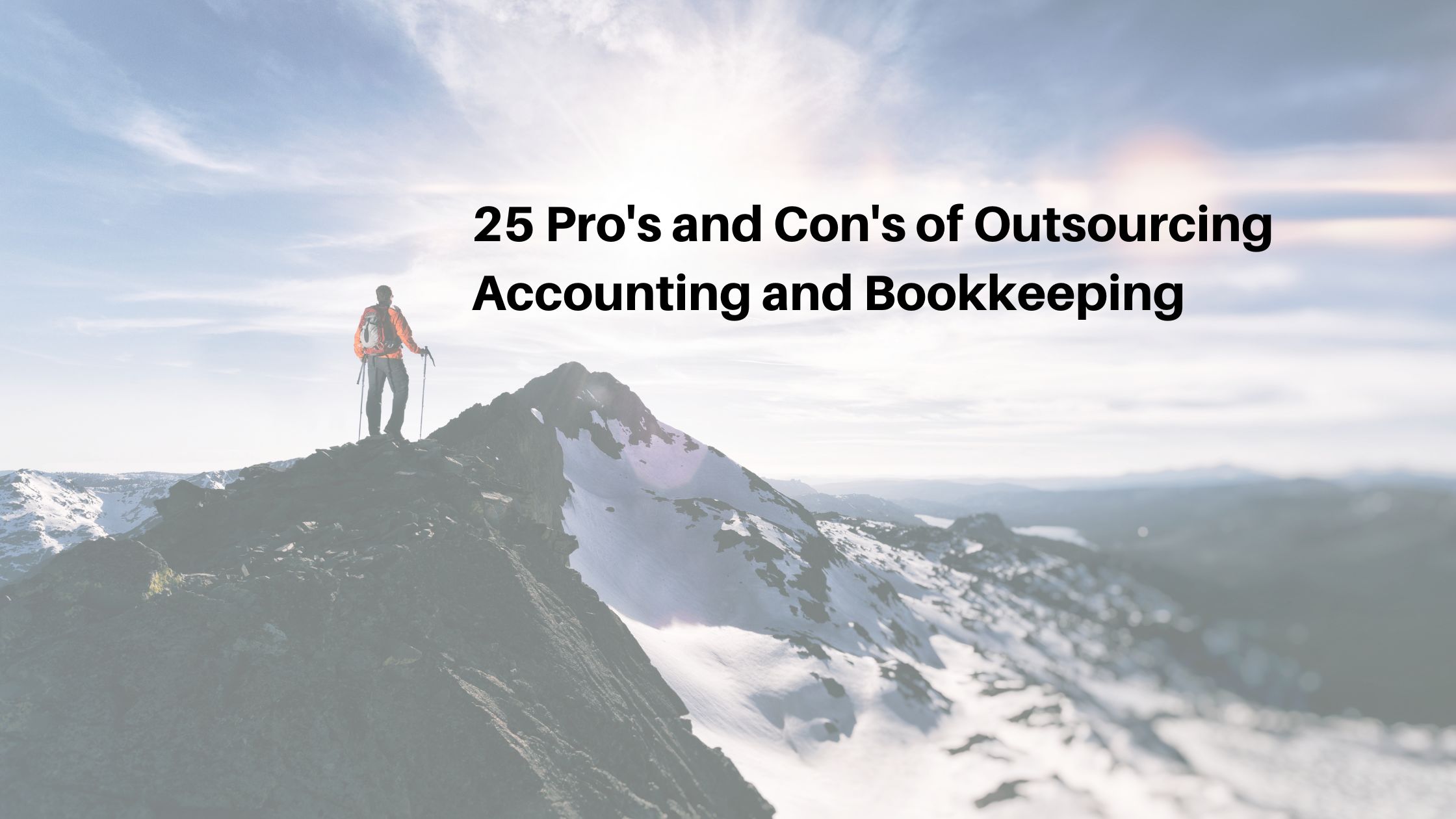Exploring the Key Attributes of Monograph Accounting for Successful Accounting Professionals

Specifying Monograph Audit: A Comprehensive Review
Monograph accounting stands for a customized technique within the wider field of economic coverage. This technique emphasizes the methodical and detailed documents of economic deals and their implications. Unlike typical accountancy, Monograph bookkeeping is typically customized to certain markets or unique circumstances, supplying a focused structure for analysis and coverage. It allows accounting professionals to dig deeper into particular locations, presenting a detailed view that straightens closely with business purposes.
A crucial attribute of Monograph accounting is its versatility; it can incorporate different audit standards and techniques as needed. This versatility makes it possible for accountants to create records that are not only exact however likewise pertinent to stakeholders. The method commonly entails extensive research study and assessment of financial data, guaranteeing that every facet is extensively recognized and documented. Therefore, Monograph accounting functions as a critical device for accountants aiming to offer insightful monetary analyses customized to details contexts.
The Relevance of Quality and Precision in Financial Coverage

Vague or imprecise reporting can result in misdirected approaches, deteriorated trust among financiers, and regulative examination. Consequently, accountants should prioritize precision in their job, making sure that numbers are diligently confirmed and financial stories are meaningful. This not just cultivates openness however likewise improves the general reputation of the company.
Inevitably, clearness and accuracy in monetary reporting are essential for maintaining stakeholder self-confidence and advertising lasting company development. Accounting professionals play an essential duty in promoting these requirements, making their know-how vital in browsing the complexities of financial information.
Enhancing Decision-Making Processes Through Monograph Accounting
Performance in decision-making procedures is substantially improved through the concepts of Monograph audit. By consolidating thorough monetary data right into a particular, coherent structure, accountants can quickly access essential info necessary for educated choices. This approach reduces the moment invested in information retrieval and analysis, enabling a more nimble response to monetary situations.
Furthermore, Monograph accounting highlights clear classification and thoughtful organization of economic transactions, which lessens errors and miscommunication. When accounting professionals utilize these concepts, they can present monetary understandings in a structured way, facilitating discussions among stakeholders.
In addition, the standardization additional info fundamental in Monograph accountancy enables seamless comparisons throughout various periods or departments, additionally aiding in strategic planning. This structured strategy not only optimizes the internal processes of audit professionals yet also boosts the overall organizational agility, equipping businesses to adapt to altering market problems promptly.
Trick Advantages for Accounting Professionals and Their Customers
While taking on Monograph accounting may need a first financial investment of time and sources, the lasting advantages for both accounting professionals and their customers are significant. This accounting method promotes enhanced accuracy and transparency, enabling accountants to maintain clearer financial records. By combining info into a particular narrative, clients gain better insights right into their economic wellness, promoting educated decision-making.
Monograph accounting cultivates more powerful customer connections through enhanced communication. Accountants can provide monetary data in a more digestible style, making it easier for customers to understand complicated info. This quality not only develops count on yet also urges aggressive financial management
In addition, the structured processes connected with Monograph bookkeeping lower the probability of errors, which can save both time and cash. Eventually, the integration of this strategy results in more effective procedures, making it possible for accountants to give over here better solution while empowering customers with boosted monetary understanding and control.
Practical Applications of Monograph Audit in Different Industries
In what means can monograph accounting change various markets? By providing a concentrated and comprehensive method to economic reporting, Monograph accountancy boosts clarity and precision throughout varied industries. In healthcare, as an example, it assists in the exact tracking of person expenses and source allowance, ultimately enhancing economic management. The manufacturing market advantages from its structured analysis of production costs, permitting for better rates methods and earnings assessments.
In the retail industry, Monograph bookkeeping helps in supply administration and sales projecting, aiding organizations maximize supply degrees and reduce waste. Furthermore, in the nonprofit industry, it helps in transparent reporting of grant funding and resource utilization, promoting count on among stakeholders. In general, Monograph audit's customized techniques make it possible for companies to attain monetary transparency and operational efficiency, making it a very useful device throughout different industries. Its flexibility makes certain that companies can meet specific audit demands while preserving compliance with regulations.
Frequently Asked Inquiries
What Software Is Finest for Executing Monograph Accounting?
The ideal software application for executing Monograph accounting consists of Xero, and Sage. These platforms offer detailed features customized for effective monitoring, reporting, and monitoring of monetary data, promoting streamlined audit processes for specialists.
Exactly How Does Monograph Accounting Differ From Typical Accountancy Methods?
Monograph accountancy concentrates on private tasks or clients, stressing comprehensive monitoring and reporting for particular entities, while typical bookkeeping accumulations data across all entities, focusing on overall monetary health instead of project-specific understandings and efficiency.
What Are Usual Difficulties Accounting Professionals Face With Monograph Accountancy?
Accounting professionals frequently come across obstacles with Monograph accounting, including complexity in financial reporting, combination with existing systems, making sure conformity with laws, adjusting to unique client needs, and managing the detailed paperwork needed for precise evaluations.
Are There Particular Laws Governing Monograph Bookkeeping Practices?
Yes, particular guidelines usually control Monograph audit techniques, consisting of adherence to nationwide accountancy requirements, conformity with tax policies, and industry-specific guidelines. Accounting professionals have to remain educated to guarantee their practices straighten with these established frameworks.
Just How Can Accountants Keep Updated on Monograph Accounting Trends?
Accounting professionals can remain upgraded on Monograph audit fads by registering for market publications, attending pertinent workshops and seminars, joining expert organizations, and involving with on the internet forums committed to accountancy criteria and finest practices. (Monograph For AE)
Monograph accountancy provides an unique moved here structure that enhances monetary reporting for accountants. Unlike traditional bookkeeping, Monograph accounting is often tailored to unique circumstances or particular industries, supplying a concentrated structure for analysis and reporting. A key attribute of Monograph bookkeeping is its adaptability; it can integrate various accounting requirements and practices as needed. By giving a focused and thorough method to financial coverage, Monograph accounting improves quality and accuracy throughout diverse markets. Yes, specific policies often regulate Monograph accountancy techniques, including adherence to national accountancy criteria, compliance with tax policies, and industry-specific standards.